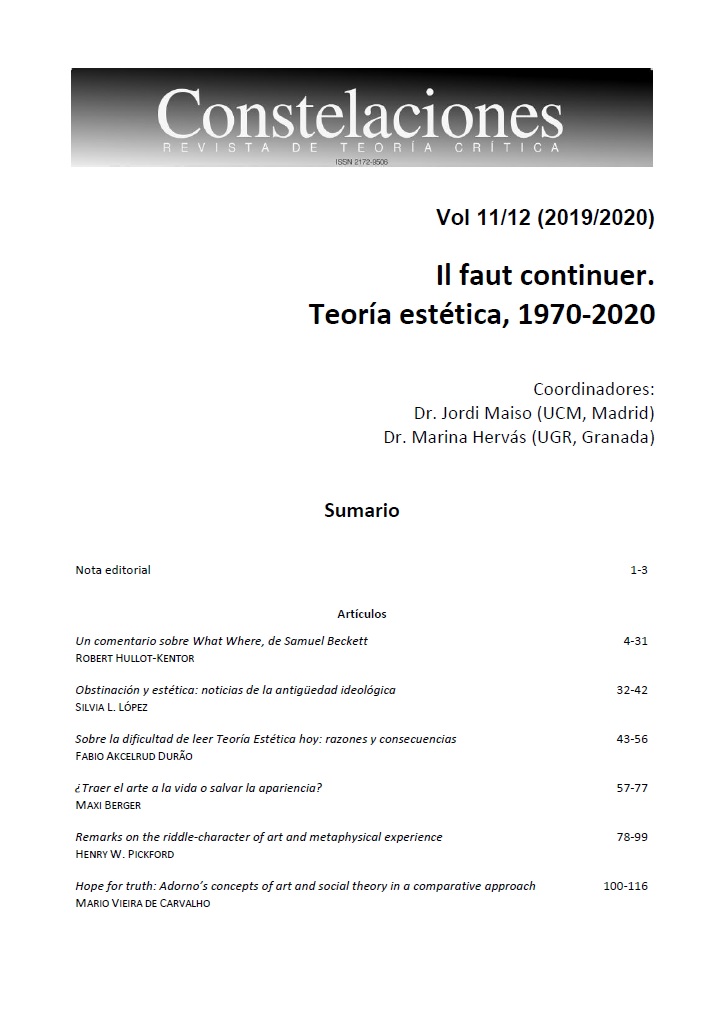Reflections on the New Readings of Marx. Critical Theory as a Non-Identitarian Knowledge
Keywords:
Critical Theory, Marxism, Adorno, automatic subject, struggleAbstract
This article presents a theoretical and historical reflection on the new readings of Marx, which are located in the tradition of the Frankfurt School, specifically: The Critique of Value, Moishe Postone’s critical theory and the Open Marxism. I use the term "new reading of Marx" in a general sense to refer to a historical constellation that covers the last 30 years. The theoretical point of view of this work is Adorno’s Critical Theory. The objective of this article is not to understand the new readings of Marx as divergent or confronted, but rather to analyze them as moments of cognition of the double character of capitalist society. I shall not to develop a complete and exhaustive analysis of the new readings of Marx; the focus of the analysis is the concept of “capital” and its relation with modern society, one of the main points for these readings. My intention in this article is to contribute the dissolution of the principle of identity that dominates modern thought as a whole, including critical thinking. Adorno’s thought is the most important attempt to overcome this principle and to escape the prison of logic.
Downloads
Downloads
Published
How to Cite
Issue
Section
License
Authors who have publications with this journal accept the following terms:
1. Authors will retain their copyright and grant the journal the right of first publication of their work, which will be simultaneously subject to the License of recognition of Creative Commons CC BY-NC-SA 4.0 that allows third parties to share, redistribute and adapt the work provided it is for non-commercial purposes and its author and first publication in this journal is indicated.
2. Authors may adopt other non-exclusive distribution license agreements for the version of the published work (e.g., depositing it in an institutional electronic archive or publishing it in a monographic volume) provided that the initial publication in this journal is indicated.
3. Authors are permitted and encouraged to disseminate their work via the Internet (e.g., in institutional telematic archives or on their website) before and during the submission process, which can produce interesting exchanges and increase citations of the published work. (See The Effect of Open Access).
Data confidentiality
1. Constelaciones. Revista de Teoría Crítica guarantees that the data you send us will only be used to meet the requests made in this message.
2. Your data will not be passed on to third parties.
3. You may request that your data be removed from our records at any time.





